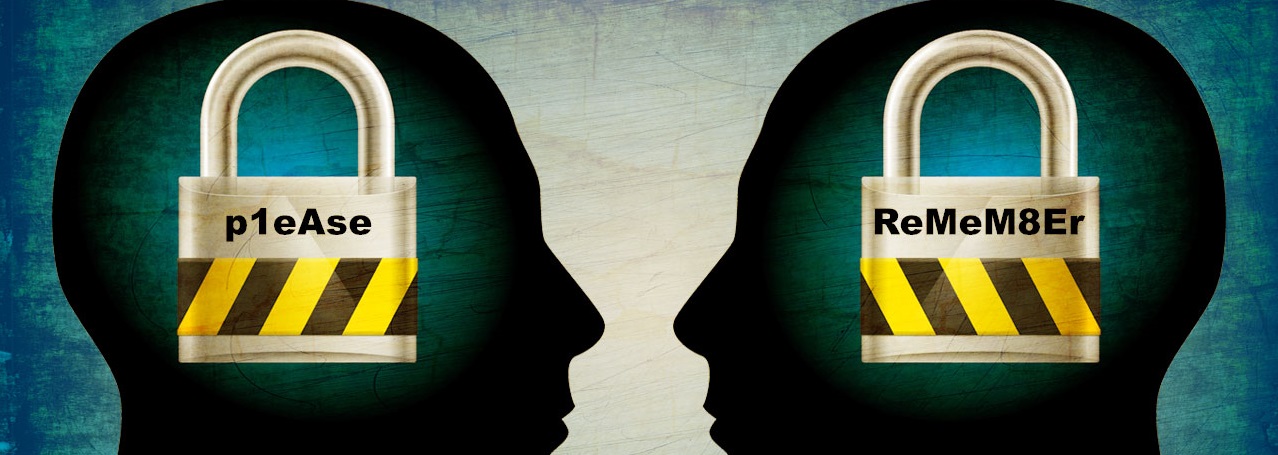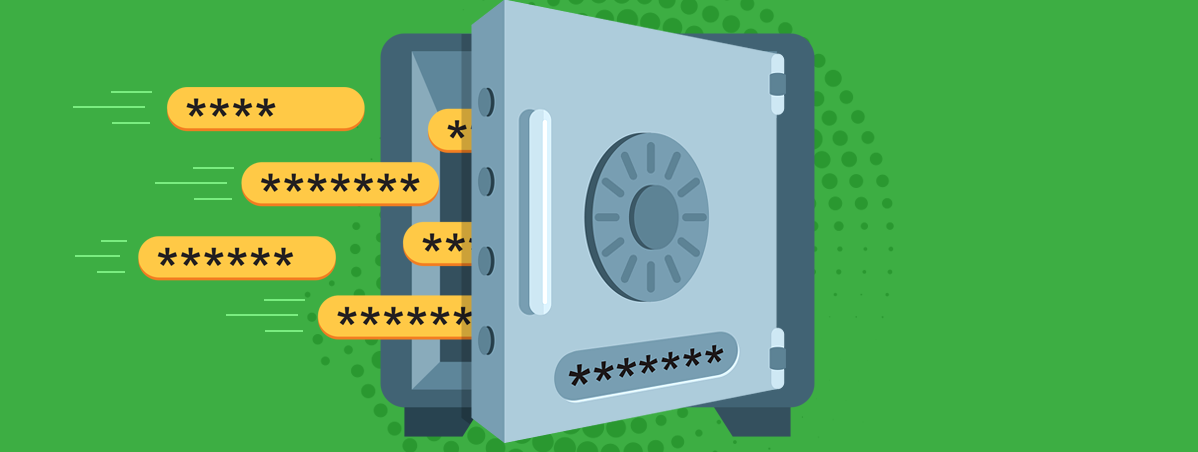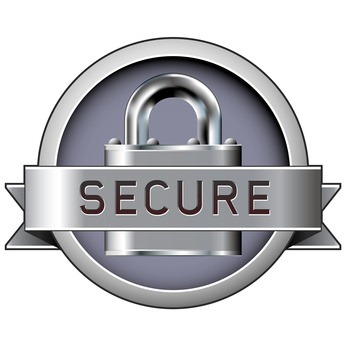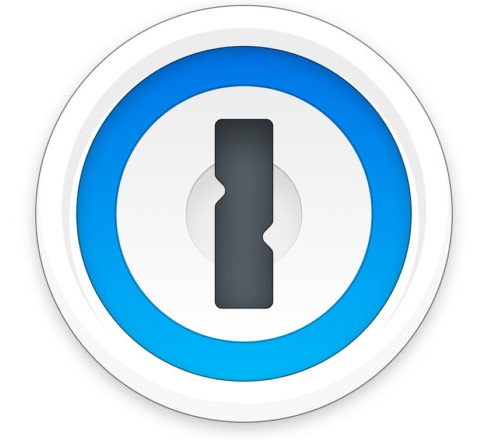
Eye-Opening Guide on How to Generate, Manage, and Store Passwords Safely
Passwords are omnipresent so much today that the average Internet user in the US has around 90 various password-protected accounts.
For every, email account, social media account, or shopping account, you need to memorize a different password. Therefore, the significance of using secure, unique passwords is increasing as you entrust growing amounts of personal information to businesses and organizations that can become victim to password leaks and data breaches. Keeping your passwords, financial and other personal data safe and protected from outside invaders is a top priority of business, but also, it’s increasingly critical for regular users to implement data protection advice and apply sound practices to keep sensitive information safe and secure. There’s an ampleness of information out there on protecting passwords, adequately protecting desktop computers, laptops, tablets, mobile devices from hackers, malware, and other threats. The great news is there are a bunch of tools out there to store passwords and secure them for you.Best Way to Store Passwords
Keep your accounts safe by taking the following steps to store usernames and passwords safely for all online and offline accounts:
- Never practice the same password and username for different online accounts;
- Choose a password manager to remember logins for websites that you use regularly, and opt for a dedicated app over the in-browser feature;
- Apply a 2-step verification for your email and social media accounts;
- Repeat passwords regularly and utilize a password generator to make an unpredictable combination of letters, numbers, and special characters.
How to Store Passwords
When it comes on how to store passwords safely, there’s no shortage of options, but some techniques are more secure than others.
Let's look at the most popular techniques and their effectiveness: • Computer: Word processor documents or passwords stored in notes are at risk of being stolen by anyone with access to your device, personally or by a virus. Password-protected documents and ZIP files are more secure, but not 100% sure; • Email: Passwords sent to yourself or anybody else by email aren’t secure unless you use an app like Proton mail, the most secure email client with PGP encryption. Recent studies say that it’s possible to teach folks with even "short" technical knowledge how to crack an email account in less than 20 minutes; • Write it down: Helpful, but not secure, unless the paper is hidden away under lock and key; • Memorize: It’s the best way to store passwords offline, as far as security is concerned but not so adequate for recovery, since a many of us struggle to remember passwords. With protection for banks and emails tighter than ever to prevent cyber-attacks, it’s not recommended to reset passwords all the time; • Browser: A simple option in the browser that remembers and pre-enters passwords to favorite sites, so you don’t need to remember. It works across all devices too; • Phone: Passwords stored in a notes app on your phone are useful also. But the potential problem may occur in case the phone is lost, damaged, or stolen; • Password managers: Operating as an online storage locker for all passwords, this option means that you only need to remember one master password to access. Managers allow you to store unique, strong passwords for different sites and use industry-standard encryption to keep them safe; • 2-Factor authentication: It adds an extra layer of security to your online accounts and makes them much harder to hack since It needs more than just a username and password for authentication; • Plain text: It’s a most naive solution to store passwords as a plain text. All users typically recycle passwords across websites, and even if a site isn’t storing traditionally sensitive data like bank details or address, it doesn’t make security less important. So, if a website ever emails you password, assume your data has been branched, and change your password immediately; • Encryption: It’s a small step up from storing passwords in plain text. You can think of encryption like placing user passwords in a box locked with a padlock. The advantage of encryption is that passwords are no longer stored in plain text and you can’t work out a user password by simply looking in the database; • Hashing: Hashing is an improvement over encryption because there is no key to decrypt our passwords into a plain. Therefore, it can be very computationally expensive for someone to try to crack the passwords. The reason hashes are so difficult to break because they’re one-way operations that are easy to calculate but very difficult to reverse.
Best Way to Keep Track of Passwords
You always have the simplest choice, to use the same username and password combination for everything, but it could be quite risky. Luckily, there is a great system that you can use to keep track of passwords and usernames, and it only needs a small investment into a password management service.
These services work on both physical computers and cloud. And the main benefit of these services is that there is just one password to remember, the master password, that provides you access to all of the other passwords you have for almost any site.
How to Manage Passwords
If remembering passwords isn’t your best characteristic, consider using a dedicated application service to manage, generate, store and retrieve passwords for you. With a password manager, you can have a unique and secure password for every website.
Let’s look at some of the best password managers (free and paid) for 20201Password
It has been the best way to manage passwords over the last few years, but with a good reason. The great feature of 1Password is its in-code integration with a significant number of mobile applications.
Another useful feature is the ability of 1Password to run as an authenticator app. Thus, you don’t need to use both a password manager and an app like Authy and Google Authenticator. 1Password also adds a secret key to the encryption key, so no data can be decrypted without that key. One big advantage of 1Password is its top-designed “travel-mode,” which enables you to remove all subset of your passwords from any “safe” accessible by any device traveling with you.
It prevents anyone, including law enforcement at border checks, from having access to your complete password vault.
LastPass
LastPass comes in 2 different labels: free and premium. Either will create and store any number of different logins in a secure vault that's guarded by the master password, with multi-factor authentication for added security.
The free version of LastPass also provides secure storage for text notes, syncing the credential by browsers, and access to your secure vault from any Internet-connected device by LastPass.com.
It will deny autocompleting forms on known phishing sites, and you can export data at any time if you want to switch to other password managers.
The premium version also adds secure cloud storage files, advanced multi-factor authentication, and the ability to set up a contingency plan so your family members or trusted friends can access accounts in an emergency.Dashlane
Dashlane is a useful and simple password management service that supports 2-factor authentication and the ability to alter a multitude of password, covering multiple sites with a just few clicks. Business versions require an annual fee.
The great thing is that Dashlane’s memory footprint gets smaller with every update, as its ability to securely store important notes and share encrypted passwords with emergency contacts in case you have trouble with the account. The software also lets you store passwords locally within an encrypted vault, or automatically sync them via your devices. Dashlane’s digital wallet offers you a convenient means for tracking and making purchases at various online retailers.
